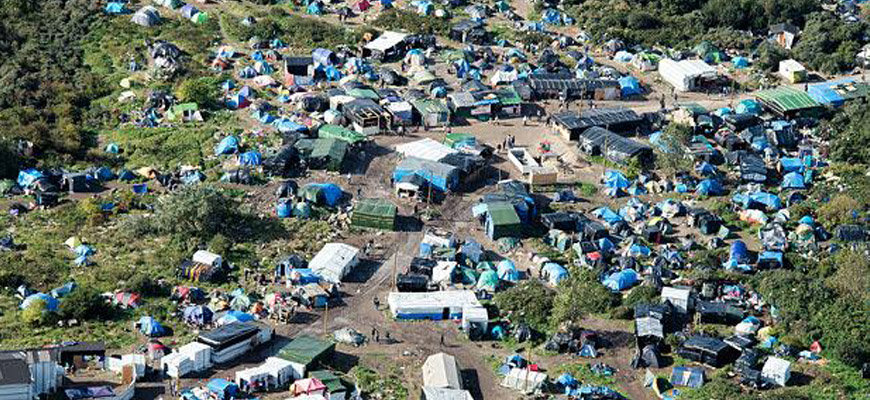The Calais area in France saw a huge influx of refugees fleeing their war prone regions. However, the reception in the area has elicited worries from human rights organisations around the world. Initially, a camp was created in Calais to handle the refugees. However, the French authorities destroyed it after some time. The refugees were left to their own devices, without any shelter or source of food. This means that over 500 hundred refugees are living on the streets and wooded areas around Calais as they seek to get asylum.

Inhumane Treatment
Hundreds of refugees around the area complain of inhumane treatment by the local authorities. Riot police who were posted in the area are said to harass the migrants on a daily basis. Some of them pepper spray both adults and children while asleep or spray pepper on their only source of food. At times, they confiscate their sleeping bags and other essential materials required for their survival. Authorities have also been blamed for turning a blind eye to the widespread harassment that refugees endure each day at the hands of the local police.

What was even more alarming was a local ban that the authorities imposed on humanitarian agencies in the region which offered help to the refugees in the area. In March, the local authorities barred any form of assistance to the refugees in the form of food, water, sleeping bags or clothing. This step was widely criticised even by the French government. However, a court ruling during the same month lifted the ban.
Other Mechanisms
Even though the court lifted the ban, the local authorities resorted to other means. For example, donations were stipulated to be distributed every day for only a single two-hour session. Local police were also used to disrupt any distribution exercise that was against their stipulated regulations. There have been cases where the police forcibly prevented the migrants from accessing the aid workers, and in some instances destroyed the food meant for them.
They have also resorted to frustrate aid workers in the area by constantly checking their documents or snatching their phones whenever they documented video evidence of the inhumane conditions that the refugees were experiencing.
Checking documents is allowed by law, but the police have resorted to the tactic as a way of frustrating the aid workers because it delays their distribution efforts. On the other hand, French law allows filming, but the police have on occasion taken the phones and deleted any videos contained in them.
Change In Circumstances
 The French government has proclaimed its commitment to supporting refugees and asylum seekers in a humane way. However, much is still expected from them, especially in the Calais area. The right solution is to remove any impediments that prevent humanitarian assistance while exercising proper treatment of refugees as stipulated under international standards. All human rights agencies are adopting a “wait and see” attitude to find out whether the French government, under President Macron, will live up to its words.
The French government has proclaimed its commitment to supporting refugees and asylum seekers in a humane way. However, much is still expected from them, especially in the Calais area. The right solution is to remove any impediments that prevent humanitarian assistance while exercising proper treatment of refugees as stipulated under international standards. All human rights agencies are adopting a “wait and see” attitude to find out whether the French government, under President Macron, will live up to its words.
See Trump’s comments endorsing police brutality.